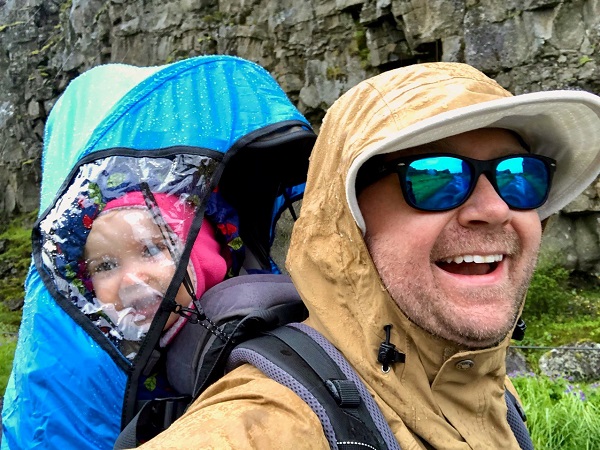Pre-Health Medicine Advising
Supporting allopathic & osteopathic methodologies with guaranteed acceptance into LECOM
If you're interested in attending medical school after Alfred University, learn how our pre-med advising can prepare you with an advanced track of courses now.
Pre-Professional Advising
Early Acceptance Program
LECOM has special Early Acceptance Programs with Alfred University that grants qualified students a provisional early acceptance to LECOM’s College of Osteopathic Medicine. Application to the EAP is separate from the application to the undergraduate school.
A student may apply for EAP consideration as a high school senior. While current undergraduate students may apply, they should contact the prehealth advisor at their school to see if they qualify. Students must submit their inquiry form before the beginning of their third year at Alfred University.
Programs
- The LECOM phase of this program may be completed in Erie, PA, Greensburg, PA or in Bradenton, FL. Students enrolled in the EAP may be exempt from taking the MCAT. An AACOMAS application will not be required.
- The student must have a provisional letter of acceptance in the EAP before starting their third year at the undergraduate institution. Upon completing four years of undergraduate study and meeting certain GPA and other requirements, they enter LECOM the following July. LECOM graduates receive a Doctor of Osteopathic Medicine (DO) degree.
Step 1
Students apply to enroll in the EAP by following the link “Early Acceptance Program Inquiry” found on the My LECOM Portal. LECOM will review the application. Student must meet the requirements to be successful.
Requirements:
- Must be a U.S. citizen or permanent resident (international students may apply to Pharmacy);
- Must not hold a bachelor’s degree or higher;
- Must have at least two years remaining as a full-time student at Alfred University;
- SAT Score (Math and Verbal Reasoning) greater than or equal to 1170 on a single exam taken before 3/1/16, a SAT score of 1240 or higher on a single exam taken after 3/1/16 or an ACT Composite score greater than or equal to 26 on a single exam;
- A high school GPA of 3.5 on a 4.0 scale or higher.
- Students already attending Alfred University must have at least a cumulative overall GPA of 3.2 and a science GPA of 3.1 or higher
Step 2
If the student meets the requirements, LECOM will offer the student a list of EAP interview dates to self-schedule an interview.
Step 3
Following a successful interview, LECOM will notify the student that they qualify for a provisional letter of acceptance from LECOM and they will be enrolled for participation in the EAP upon approval by Alfred University of their choice and submission of their school email address to LECOM. The student and Alfred will then be sent the provisional letter of acceptance.
Step 4
Additional requirements, including a final application to LECOM, must be met for final acceptance to LECOM, but another interview is not required.
Students aspiring to be medical doctors generally share the following characteristics:
- Care deeply about other people, their problems, and their pain;
- Use their skills and knowledge to help people;
- Enjoy learning and gaining new understanding;
- Are interested in how the human body functions;
- Are intrigued by the ways in which medicine can be used to improve life.
An osteopathic physician (DO) considers the whole person, including physical, emotional, and spiritual components. They also use a hands-on system of diagnosis and treatment known as osteopathic manipulative medicine. They work in partnership with their patients to help each individual maintain their health, and they can specialize in any medical field, practice the full scope of modern medicine, complete important medical research, advise policy makers, and contribute to societal health and well-being in many ways.
Allopathic medicine refers to modern scientific systems of medicine, such as the use of pharmacologically active agents or physical interventions to treat or suppress symptoms or pathophysiologic processes of diseases or conditions. Allopathic physician (MD) responsibilities are varied and mainly relate to the preservation of health, including preventative and acute care. Allopathic physicians practice in various different specialty areas. They may also dedicate their career to teaching or research.
- Timeline - Students should refer to Alfred University's Pre-Health Timeline and Premed Curriculum Checklist (below) to assist them in career planning.
- College Major and Required Courses - There is no specific major that is required, or that is "best" to pursue. Medical schools are looking for well-educated and well-rounded individuals. Students should complete the Pre-Med Curriculum Worksheet to be sure that they have met all requirements.
- The MCAT - Most medical schools require the Medical College Admissions Test (MCAT). The usual time to take it is in the spring semester of the Junior year. Adequate preparation for this test is essential, since admission to medical school is competitive.
- Extracurricular activities are a very important part of the applicant's materials. Most medical schools place emphasis on volunteer community service. Some volunteer experience in a medical setting is a must. Undergraduate research is a plus.
- It is important to get to know faculty members so that they can write appropriate letters of recommendation. The Pre-Health Professions Advisory Committee at Alfred University can prepare a Pre-Medical Committee Letter for students.
Most medical schools accept applications through the American Medical Colleges Application Service. This application should be submitted in the summer before your last year in college and can be downloaded from the AMCAS website.
Osteopathic vs Allopathic Medicine
There are two kinds of practicing physicians: allopathic (MD’s) and osteopathic physicians (DO’s). Both are fully licenses physicians, train in diagnosing and treating illnesses and disorders, and in providing preventive care. Osteopathic medicine is a distinctive form of medical practice in the United States. Osteopathic physicians use all of the tools and technology available to modern medicine with the added benefits of a holistic philosophy and a system of hands-on diagnosis and treatment. DO’s emphasize helping each person achieve a high level of wellness by focusing on health education, injury prevention and disease prevention. Allopathic medicine is ‘classic medicine’ that combats diseases with the use of drugs or surgery. Consider shadowing both allopathic and osteopathic physicians and applying to both medical schools.
Major
It is important that you choose a major that reflects your strongest academic interests rather than one that you think would look good to medical schools. Choose a major you are passionate about! It is not a requirement or a benefit to major in a science.
The minimum course requirements for most U.S. medical schools are listed below with their AU equivalent courses. Please check AAMC | Students & Residents.
| Checkbox | Course | AU Equivalent |
|---|---|---|
| English | ENGL 101 | |
| English | ENGL 102 | |
| Psychology | PSYC 101 or PSYC 118 | |
| Sociology | SOCI 110 |
| Checkbox | Course | AU Equivalent |
|---|---|---|
| Calculus I | MATH 151 | |
| 2nd Math or Stats | MATH 152; 381; BIOL 226; POLS/SOCI 330; PSYC 220 |
| Checkbox | Course | AU Equivalent |
|---|---|---|
| Physics I | PHYS 111 or 125 | |
| Physics II | PHYS 112 or 126 |
| Checkbox | Course | AU Equivalent |
|---|---|---|
| General Chemistry I | CHEM 105 | |
| General Chemistry II | CHEM 106 | |
| Organic Chemistry I | CHEM 315 | |
| Organic Chemistry II | CHEM 316 |
| Checkbox | Course | AU Equivalent |
|---|---|---|
| Biological Foundations (requirement for Biology sequence) | BIOL 150 | |
| Cell Biology | BIOL 211 | |
| Structure and Function | BIOL 213 | |
| Biochemistry | BIOL 420 |
Additional Required or Relevant Coursework
Some medical schools require or recommend additional coursework, e.g., in anatomy and physiology, genetics or ethics.
Experience
Medical schools place a strong emphasis on your clinical exposure to medicine and patient care, including time spent shadowing, working in clinics, and other patient-centered settings. Engaging in direct patient interaction (i.e., transporting patients, serving as a medical translator, etc.) will greatly enhance your experience. While there is no set number of hours for this experience, a common guideline is to attempt to gain 500 hours before you apply. Again, this is just a suggestion and by no means a required amount. Instead of focusing on the number of hours, you should instead focus on the type of experience and the benefits for both you and the patients you serve.
Core Competencies of an Applicant
Successful medical school applicants are able to demonstrate skills, knowledge, and abilities in these areas: service orientation, social skills, cultural competence, teamwork, oral communication, ethical responsibility to self and others, reliability and dependability, resilience and adaptability, and capacity for improvement.
Entrance Exam (MCAT)
The newly revised MCAT has 4 sections: Molecular, cellular and organismal properties of living systems; Physical, chemical and biochemical properties of living systems; Social and behavioral sciences principles; and Critical analysis and reasoning skills. Therefore, you are advised to take the MCAT after completing all your prehealth requirements. The MCAT is usually taken during the summer after the junior year.
Timeline
Submit application materials during the summer before your senior year on the AMCAS website. The Prehealth Advisory Committee will write a composite letter based on letters of recommendation you have received and put into your prehealth file at the CDC. An interview is required by the Committee in order to write your letter.
Early Acceptance Program (EAP)
Alfred University has a special Early Acceptance Program that grants qualified students a provisional early acceptance to LECOM’s School of Osteopathic Medicine. A student may apply for EAP consideration as a high school senior. Current undergraduate students must apply before the end of sophomore year for acceptance.


